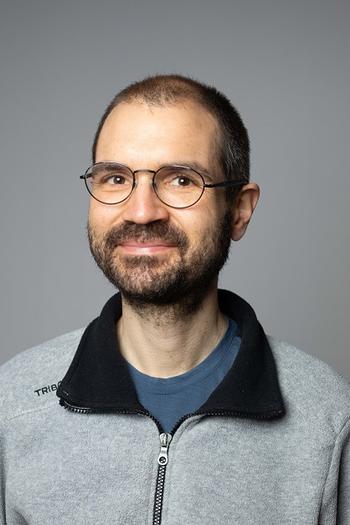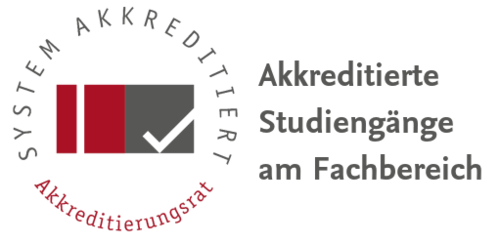Dr. Néhémie Strupler

Postdoctoral Researcher, bis 02/2024
Digital Humanities, Archaeology, Anatolian & Caucasian Bronze Age
Néhémie Struplers Forschungsschwerpunkte liegen auf der Archäologie Westasiens und computergestützten Forschungsmethoden, einschließlich statistischer Analyse und GIS. Im September 2016 reichte er seine Dissertation über die hethitische Hauptstadt Boğazköy/Ḫattuša mit dem Titel "Die Unterstadt von Boğazköy im 2. Jt. v. Chr. Politische und urbane Umstrukturierung eines Stadtstaats in eine Hauptstadt“ an der Universität Strasbourg gemeinsam mit der WWU-Münster ein. In dieser Arbeit (die als Band 28 in der Reihe Boğazköy-Ḫattuša des Deutschen Archäologischen Instituts erscheinen wird) beschäftigt er sich mit der Frage nach der Veränderungen von Aktivitäten in den Wohnvierteln während der Übergangsphase, als die Stadt zur politischen Hauptstadt wurde.
Néhémie Strupler war am Deutschen Archäologischen Institut in Istanbul tätig, anschließend Postdoktorand bei ANAMED in Istanbul und am Walter Benjamin Kolleg in Bern. Er war Referent für Archäologie am französischen Institut für Anatolienforschung in Istanbul (IFEA) und ist derzeit wissenschaftlicher Mitarbeiter am Institut für Institut für Wissensgeschichte des Altertums. Néhémie Strupler engagiert sich für Open Science und die Nutzung Freier Software. Als digitaler Geisteswissenschaftler entwickelt er datenwissenschaftliche Methoden um archäologische Daten durch offene und reproduzierbare Standards zu analysieren.
WiSe 2023/24
An Applied Introduction to Data Analysis with R
13957 Blockseminar: Néhémie StruplerFriday, 09:00-17:00 h c.t.
Sessions: 03.11.2023, 10.11.2023, 17.11.2023, 24.11.2023
Venue: Arnimallee 10, Raum 010
Please register via email: wissensgeschichte@geschkult.fu-berlin.de
A proficient understanding of and skill in managing digital data are crucial in the era of Digital Humanities. R, a widely utilized tool, serves this purpose effectively. This block seminar offers students a comprehensive introduction to the functions and capabilities of the statistical software and programming language R. The primary objective is to empower students to independently conduct scientific data analyses. Upon completion, participants shall be able to apply the acquired knowledge to their own research (Hausarbeiten and Bachelor/Master theses). Key topics covered in the course include data import, object creation, object indexing, creating graphics, performing statistical evaluations, and programming in R.
Requirements:
Students must bring their own laptop computer with RStudio installed. RStudio is free to download at the following website: https://posit.co/products/open-source/rstudio/#Desktop
SoSe 2023
Settlements & Urbanism in Archaeology. Theory and Digital Methods for Landscape Analysis
13954 Seminar
Friday, 12:00-14:00 h. c.t.
First session: Friday, 21.04.2023
Venue: Arnimallee 10, room 010
Please register via email: wissensgeschichte@geschkult.fu-berlin.de
This course will introduce the ways in which archaeologists attempt to understand settlements and urbanism in ancient landscapes. We will focus on various strategies and techniques of fieldwork and data interpretation, both theoretical and applied. We will become familiar with archaeological survey and spatial analysis of archaeological evidence across landscapes and how archaeologists collect data to interpret regional settlement systems, land use and communication. The main topic of discussion will be how landscapes came to be and how we can try to understand them using the full variety of data and analysis methods available to us. Although Geographic Information Systems (GIS) will be part of the course, this course will not focus on the use of GIS in archaeology. The case studies include regional works about Western Asia and the Mediterranean Basin.
Requirement:
Students must bring their own computer (laptop) to each class
Recommended Reading:
E. B. Banning (2002), Archaeological Survey, Kluwer Academic/Plenum Publishing, New York. https://doi.org/10.1007/978-1-4615-0769-7
Gillings, M., Hacıgüzeller, P. & Lock, G. 2020. Archaeological Spatial Analysis. London: Rout- ledge. https://doi.org/10.4324/9781351243858
WiSe 2022/23
Digital Data Workflows in Archaeology (Seminar, 2 SWS per week)
13957 Seminar
Friday, 12:00-14:00 h. c.t.
First session: Friday, 21.10.2022
Venue: Arnimallee 10, room 010
Please register via email: wissensgeschichte@geschkult.fu-berlin.de
Digital data play an increasingly important role in how we understand the present and the past. Understanding and using digital data are as intellectually demanding as any other archaeological research endeavour.
This course focuses on understanding the workflows in digital data to make the most of the digital data that archaeologists produce as well as data available on the internet. In this course we you will strengthen your data literacy, learn to manage, assess, reuse and communicate the data our discipline creates and refers to. An important aspect of this course will be to explore the infrastructure of long term archives available online, what we can learn from the data online and how these can be leveraged for further research projects.
Requirement:
Students must bring their own computer (laptop) to each class with an up-to-date version of the free and open-source softwares R, R-studio and QGIS.
Recommended Reading: See eVV
SoSe 2022
Introduction to Open and Reproducible Research in Archaeology Using R and Related Tools (Blockseminar)
13993 Seminar: Néhémie Strupler
Blog Semimnar, Thursday and Friday, 14.7.-15.7.2022 and 21.7.-22.7.2022, 09:00-17:00 h. c.t.
First session: Thursday 14. Juli 2022
Venue: Arnimallee 10, room 010
Please register via email: wissensgeschichte@geschkult.fu-berlin.de
In the age of digital archaeology, proper management of data and their manipulation (collecting, storing, analysing, sharing and archiving) is a key skill. Too often, we are not sure how we used data to find answers. What about the results you obtained a year ago or those that you used when you collaborated with other persons?
The replication of scientific findings is a standard by which scientific claims are evaluated. In the fields of science that cannot be replicated, there is a need for minimum standards to assert the conformity between data and results. In the realm of digital data, one candidate for this minimum standard is “reproducible research”, which requires that data sets and computer code be made available to others for verifying published results and conducting alternative analyses.
In this course you will learn the ideas of reproducible research. Topics covered include managing data and literate programming for data analyses. You will learn to write dynamic documents using R and related tools, to publish documents to the web and to collaborate with others to produce data analysis. We make use of a wide range Free Source software (R, Git, pandoc) and the course is taught using a combination of lectures, practical sessions and tutorials realised on your own laptop.
Requirement: No programming experience is necessary, but it will be expected to work in small teams to complete programming assignments. Students must bring their own computer (laptop) to each class.
Forschungsschwerpunkte
Archäologie
Sein Forschungsschwerpunkt liegt geographisch und chronologisch auf Zentralanatolien und dem Kaukasus während der Bronzezeit (3000-1200 v. Chr.), wo sich Vorgeschichte und Geschichte überkreuzen. Néhémie untersucht die Beziehung zwischen Umwelt und menschlicher Gesellschaften über die longue durée. Er befasst sich mit dem Zusammenspiel zwischen Urbanisierung und der damit eingehenden neuen Konzeptualisierung des ländlichen Lebens. In letzter Zeit hat sich sein wissenschaftliches Interesse besonders über die Reorganisation von den Netzwerken von Städten und ihren Aktivitäten konzentriert. Um diese Zusammenhänge zu erforschen, nimmt er regelmäßig an Feldforschungen teil und hat aktive Forschungsprogramme in der Türkei. Daneben arbeitet er an der Untersuchung von Verwaltungsinstrumenten wie Siegel(abdrücke) und Fragmente von Keilschrifttafeln aus archäologischer Sicht, insbesondere durch GIS Analyse, um ihre Verwendung und Ablagerung hervorzubringen.
Digitale Geisteswissenschaften
Néhémie Strupler nutzt innovative digitale Ansätze zur Erforschung und Darstellung von Artefakten und unterstützt den Übergang zu Open Science in den Geisteswissenschaften. Die Grundlage seiner Forschung liegt in quantitativen und statistischen Methoden. Zu den Schwerpunkten seiner Methoden gehören Statistik, digitale Kartierung, digitale Geschichte, Open-Access-Datenbanken und Webtechnologien. Um die generierten Daten als offene Ressource anderen Forschenden mit unterschiedlichen Forschungsinteressen zur weiteren Nutzung zur Verfügung zu stellen, entwickelt Néhémie Strupler eine Strategie für die Verfügbarkeit digitaler Daten (Open Data), deren Langzeitarchivierung und die Reproduzierbarkeit von Analysen (Open Science). An der Freien Universität Berlin lehrt er Methoden der “Digital Humanities” anhand von archäologischen Daten.
ORCID: https://orcid.org/0000-0002-2898-6217
Green Open Access (Accepted Version): https://hal.archives-ouvertes.fr/search/index/q/*/authIdHal_s/nehemie-strupler


